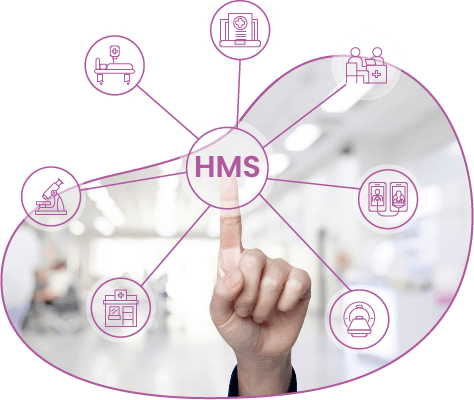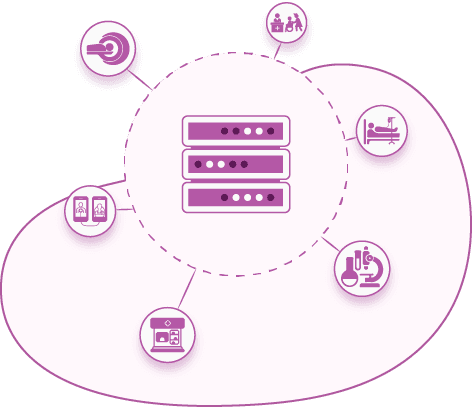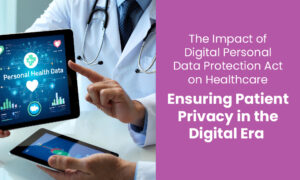
In today’s rapidly advancing healthcare landscape, the transition from paper-based medical records to electronic health care records has revolutionized the way healthcare information is managed and shared. EHR systems have become the backbone of modern healthcare, offering numerous benefits for both patients and healthcare providers. In this blog, we’ll delve into the world of EHR and explore its key components.
What is an Electronic Health Care Record?
An Electronic Health Record (EHR) represents a digitized rendition of a patient’s complete medical history. It includes comprehensive information about a patient’s health and medical treatment over time, stored electronically and securely. EHRs provide a centralized and accessible platform for healthcare professionals to manage, update, and exchange patient information efficiently.
Key Components of Electronic Health Care Records
The Electronic Health Record comprises various components that potentially serve in the healthcare industry for potent data management and patient care. A few of the important components of healthcare electronic records are discussed below.

1. Patient Demographics and Medical History:
The EHR typically begins with basic patient information, including name, date of birth, contact details, and emergency contacts. It also encompasses a detailed medical history, which includes previous illnesses, surgeries, and family medical history.
2. Clinical Notes and Documentation:
Clinical notes are essential components of a healthcare electronic records, capturing healthcare providers’ observations, assessments, and treatment plans during patient visits. These notes can be in the form of progress notes, SOAP (Subjective, Objective, Assessment, Plan) notes, and more.
3. Medication Management with electronic health care records:
Electronic health records maintain comprehensive lists of prescribed medications, including dosage, frequency, and instructions. They can also check for drug interactions and allergies to ensure patient safety.
4. Order Management:
Healthcare providers can electronically create and manage orders for medications, diagnostic tests, and procedures through the healthcare electronic records, ensuring accuracy and reducing delays.
5. Immunization Records:
EHRs maintain records of vaccinations, helping healthcare providers track a patient’s immunization history and schedule necessary vaccinations.
6. Billing and Insurance Information:
EHRs may include billing and insurance information to streamline the billing process and ensure accurate reimbursement.
7. Secure Messaging and Communication:
Some electronic medical records systems offer secure messaging capabilities, facilitating communication between healthcare providers, patients, and authorized personnel. This enhances collaboration and information sharing.
8. Patient Portal:
Many EHRs feature patient portals, which enable patients to access their health records, schedule appointments, request prescription refills, and communicate with their healthcare providers online.
Analysing Healthcare Quality Aspects of Electronic Health Care Records
EHR and EMR are today’s significant tools in the healthcare industry on which so many healthcare facilities are relying. This software management is not only providing fast-paced functionalities but also efficient interoperability. Electronic health care systems are the software which are conceptually designed to offer huge advantages over maintaining and collecting patient’s medical information in an electronic format.
Following are the points that could help you to understand the quality aspects of electronic health records:
- EHRs can provide more precise and detailed patient information, which is next to possible with conventional paper documents.
- This software helps maintain a better workflow within the departments and maintains records and reports that save additional time on data gathering.
- The electronic medical records provide tools that help healthcare providers to more focus on their patient’s health resulting in better preventive care that improves quality care and treatment outcomes.
- By using efficient electronic health care systems, you can improve your care coordination with your staff and patients by handling all medical requirements through advanced technologies.
Ezovion Electronic Health Care Records
The Ezovion EHR/EMR Software, hosted in the cloud, serves as an advanced healthcare platform that operates in real-time to establish and safeguard patient health records efficiently and securely, tailored to the needs of healthcare practices. It empowers healthcare providers to comprehensively document critical services, including lab orders, radiology orders, prescriptions, and more, spanning the entire patient visit from check-in to check-out.
Conclusion
electronic health care records have transformed the healthcare industry by providing a digital solution for managing patient information efficiently and securely. These comprehensive systems encompass various key components, from patient demographics and clinical notes to medication management and secure communication. Electronic health care systems improve patient care and safety and enhance collaboration among healthcare providers, ultimately leading to better healthcare outcomes with its quality-providing aspects. As technology continues to advance; electronic health care records will play an increasingly pivotal role in the delivery of modern healthcare.
Source-
· What information does an electronic health record (EHR) contain? | HealthIT.gov
· How do Electronic Health Records Improve the Quality of Care (eduhealthsystem.com)



















